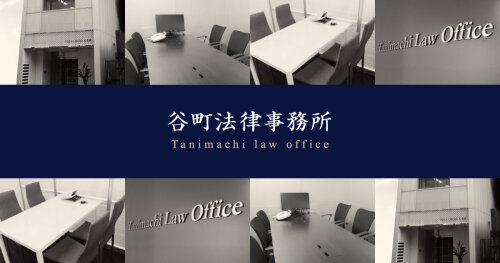Best Military Divorce Lawyers in Osaka
Share your needs with us, get contacted by law firms.
Free. Takes 2 min.
Free Guide to Hiring a Family Lawyer
List of the best lawyers in Osaka, Japan
About Military Divorce Law in Osaka, Japan
Military divorce in Osaka, Japan, involves the dissolution of marriage where at least one spouse is a serving or retired member of the military. These divorces can be particularly complex due to the intersection of Japanese civil law, international treaties like the Status of Forces Agreement (SOFA), and the unique circumstances faced by military families living in or stationed near Osaka. Military divorce may involve issues such as division of foreign or military pensions, jurisdictional questions, and custody disputes spanning international borders.
Why You May Need a Lawyer
Seeking experienced legal assistance during a military divorce in Osaka is highly recommended due to several unique challenges:
- If you or your spouse are deployed, reside on a base, or have assets in multiple jurisdictions, a lawyer can clarify how local and international rules affect your situation.
- Issues involving child custody, visitation, and support may require specialized knowledge, especially when one parent is a military service member subject to transfer or deployment.
- Dividing military pensions and benefits can be complicated. An attorney can help you understand your entitlements and ensure a fair distribution.
- If either spouse is a foreign national, additional challenges may arise regarding immigration status, residency rights, and international child abduction prevention.
- Language barriers and unfamiliarity with the Japanese legal system may impair your ability to protect your rights without legal support.
Local Laws Overview
In Osaka, military divorces are generally governed by Japanese civil law. However, special considerations apply when one or both parties are military personnel stationed in Japan under international agreements. Courts in Osaka have jurisdiction over divorces involving military members residing within Osaka Prefecture, including those stationed at bases like the Iwakuni base (though located in Yamaguchi, some residents or their spouses commute or reside in Osaka).
Key aspects include:
- Divorce Types: Couples may file for a divorce by mutual consent (kyogi rikon), mediation in family court (chotei rikon), or, if all else fails, contested litigation (shimpan or saiban rikon).
- Child Custody: Japanese courts typically grant sole custody to one parent, but international cases may differ under The Hague Convention or SOFA considerations.
- Property Division: Marital assets, including overseas pensions, are divided under Japanese equitable distribution rules.
- Spousal and Child Support: Support amounts are determined by Japanese courts, often using official guidelines but also considering the unique circumstances of military life.
- Jurisdiction and Recognition: International treaties and bilateral agreements may affect how orders are enforced across borders or recognized by foreign authorities.
Frequently Asked Questions
What is the process for filing a military divorce in Osaka?
You can start by filing either for divorce by mutual agreement or by petitioning the family court. The process involves agreeing on key issues or having them decided by the court if you cannot reach consensus.
Are there any differences between civilian and military divorces in Osaka?
Yes. Military divorces may involve jurisdictional issues, division of military pensions or foreign assets, and are sometimes governed by international treaties or SOFA provisions, unlike typical civilian divorces.
Can a military spouse living overseas file for divorce in Osaka?
Generally, if the Japanese court has jurisdiction (for example, one spouse resides in Osaka or within its legal reach), the process can be initiated in Osaka. Jurisdictional rules can be complex and may require legal advice.
How are child custody and visitation determined in these cases?
Japanese courts often grant sole custody to one parent. However, international cases may lead to shared arrangements or be influenced by international agreements protecting children’s rights.
What happens to military pensions and benefits after a divorce?
Military pensions and certain benefits are considered marital property under Japanese law and may be divided, but practical division and enforceability, especially of foreign pensions, require legal guidance.
Does deployment or reassignment affect the divorce process?
Yes. Deployment or transfer orders can affect timelines, custody decisions, and even jurisdiction. Special arrangements may be needed to account for military duties.
Can a foreign spouse contest a divorce or child custody ruling?
A foreign spouse has the right to contest divorce or custody rulings within the Japanese legal system. Access to interpreters and legal counsel is advisable.
Will a divorce in Osaka be recognized in other countries?
Most countries, including the US and those signed onto the Hague Convention, recognize Japanese divorces. However, paperwork and procedures may vary, so it is best to verify with your home country’s authorities.
How can spousal or child support be enforced if the paying party leaves Japan?
Enforcement may involve cooperation through international treaties or bilateral agreements. Legal assistance is necessary to navigate cross-border enforcement issues.
Where can I get assistance in English or other languages?
Many law firms in Osaka offer services in English or other foreign languages. Additionally, some government offices and support organizations have multilingual resources or interpreters.
Additional Resources
If you need further help regarding military divorce in Osaka, you may contact the following organizations or bodies:
- Osaka Family Court: For filing and process inquiries regarding divorce and child custody.
- Japan Legal Support Center (Houterasu): Offers legal information, referrals, and support for foreigners.
- City or Ward Legal Consultation Services: Many city offices offer free or low-cost legal consultations.
- US Military Legal Assistance Offices (if applicable): If you are a US military member or spouse, your base legal office can offer initial guidance and referrals.
- Japanese and international bar associations: For listings of English-speaking or international family law attorneys.
- Nonprofit organizations focused on international families or military personnel in Japan.
Next Steps
If you believe you need legal help with a military divorce in Osaka, consider the following approach:
- Gather relevant documents, such as marriage certificates, military orders, and financial records.
- Contact a qualified family law attorney experienced in both Japanese and international or military divorce matters.
- Schedule a consultation to discuss your unique circumstances, clarifying the relevant jurisdiction, legal processes, and possible outcomes.
- Prepare a list of questions or priorities for your attorney, such as custody arrangements, division of property, or immigration implications.
- Utilize local resources, such as interpreter services or military legal aid, if language or access is a concern.
- Stay informed of all court dates and deadlines, and comply with all Japanese legal requirements throughout the process.
Taking these steps can help ensure your rights are protected and the process proceeds as smoothly as possible during this challenging time.
Lawzana helps you find the best lawyers and law firms in Osaka through a curated and pre-screened list of qualified legal professionals. Our platform offers rankings and detailed profiles of attorneys and law firms, allowing you to compare based on practice areas, including Military Divorce, experience, and client feedback.
Each profile includes a description of the firm's areas of practice, client reviews, team members and partners, year of establishment, spoken languages, office locations, contact information, social media presence, and any published articles or resources. Most firms on our platform speak English and are experienced in both local and international legal matters.
Get a quote from top-rated law firms in Osaka, Japan — quickly, securely, and without unnecessary hassle.
Disclaimer:
The information provided on this page is for general informational purposes only and does not constitute legal advice. While we strive to ensure the accuracy and relevance of the content, legal information may change over time, and interpretations of the law can vary. You should always consult with a qualified legal professional for advice specific to your situation.
We disclaim all liability for actions taken or not taken based on the content of this page. If you believe any information is incorrect or outdated, please contact us, and we will review and update it where appropriate.













